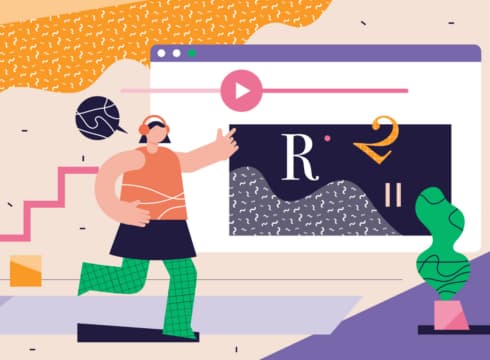According to PISA, a worldwide study conducted by OECD, Indian students stood in the second to last position in the world among 73 countries when it comes to students’ reading literacy
Students today are bombarded by a deluge of learning aids and content with core pedagogies and key concepts getting lost in the noise
Edtech players need to leverage technology and scientific methodologies to gain insights into how students learn, build learning frameworks around these insights, and scale them
Inc42 Daily Brief
Stay Ahead With Daily News & Analysis on India’s Tech & Startup Economy
The process of learning and teaching has undergone a paradigm shift over the last decade. This shift can be attributed to several factors. For instance, parents have become more cognizant of what their children are learning in school. It can also be contributed to the greater use of edtech in schools to address the diverse needs of growing student populations.
The Programme for International Student Assessment (PISA) is a worldwide study conducted by Organisation for Economic Cooperation and Development (OECD). In its 2018 report, it noted that most students in these countries were lacking in reading literacy.
This translated to a hampered capacity to comprehend, evaluate and engage texts to apply them to develop their academic knowledge and potential. When India took the study in 2009-10, it stood in the second last position in the world among 73 countries.
One of the reasons for that performance is that the Indian education system mainly tests recall and rote learning whereas PISA tests conceptual clarity and the ability to explain one’s answer.
When faced with a question, most Indian students try to ‘pattern match’, or recall a similar type of question they have seen and then adapt those steps. This works for the questions in Indian tests, but PISA expects students to read and understand background information from an unfamiliar context and answer based on understanding and application.
We need to move from a facts-driven assessment to one that tests students’ understanding of concepts. This is aligned with the National Education Policy (NEP) 2020 and its focus on competency-based assessments and the move away from regurgitating textbook content. As per the NEP’s recommendations, the board exams are also being changed to reflect this approach.
The Edtech Problem
Indian edtech startups today seem to be focusing more on the mode of delivery of content than the pedagogy of the content. With colourful representations and attractive storytelling techniques, children today are bombarded by a deluge of learning aids and content with core pedagogies and key concepts getting lost in the noise.
Videos are only able to measure the ‘delivery’ of content and not focus on the ‘absorption of learning’ aspect by the student. Hence the proliferation of all this content has not dramatically improved learning. There hasn’t been much uptick in cultivating an understanding of the source material as measured by annual assessments like Ei-ASSET, ASER (Annual Status of Education Report) or NAS (National Achievement Survey).
The need of the hour is content created from pedagogical insights drawn from large numbers of students — this will be the tide that lifts all boats. Making this the core of all learning systems will improve the efficacy of the content regardless of the mode of delivery.
Pedagogical research focused on the topic and based on the insights on how teachers are teaching has the potential to make a significant contribution to the quality of learning for all students. This can be done by creating questions that can identify misconceptions and be administered at a large scale.
Aligning With Global Best Practices
The NEP has strengthened our mission to primarily focus on scientific inquiry, foundational literacy and numeracy to build content that drives the growth of these competencies in students. Everything that a student studies in higher standards stems from an understanding of these core subjects.
An Assessments-Driven Approach
The Indian education system continues to heavily rely on assessments to analyse students’ understanding of topics. To thrive in such a learning ecosystem and drive impactful change, Indian edtech startups need to shift their focus towards engineering effective assessments.
Edtech players need to leverage technology and scientific methodologies to gain insights into how students learn, build learning frameworks around these insights, and scale them. We should aim to not only evaluate students’ understanding but also enable understanding through the evaluation process. This can only happen if each question in the assessment stems from deep pedagogical research.
The Way Forward
Opportunities in the edtech sector today are limitless. We have 300 Mn students in India. For a minute, if we agree that each of them is willing to spend INR 200 per month. This means that this is already a $9 Bn revenue industry.
The Indian edtech space is primed to witness massive transformations in the way teachers teach and students learn. The key to driving growth in this sector is to ensure all our students, regardless of their socio-economic background, get access to learning content at par with global standards. This is where the magic of technology lies.
With over 750 Mn smartphone users in the country, scaling high-quality assessments and learning tools to reach every corner of the country is no longer a pipe dream. We just need to ensure that high-quality content that has a strong pedagogy underpinning it is flowing in the data pipes.
{{#name}}{{name}}{{/name}}{{^name}}-{{/name}}
{{#description}}{{description}}...{{/description}}{{^description}}-{{/description}}
Note: We at Inc42 take our ethics very seriously. More information about it can be found here.


